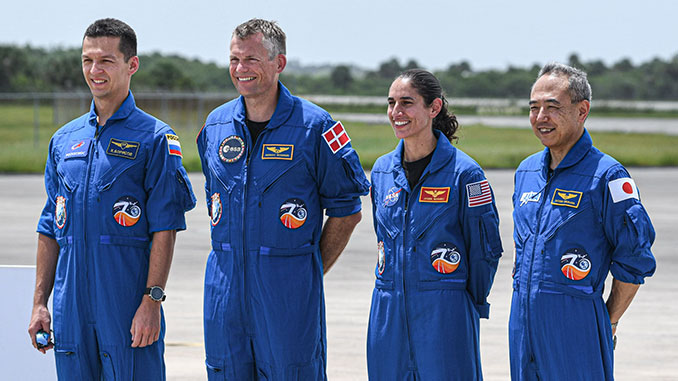Recently, former and current government officials, legislators, and faculty in the United States have called for research on what their government terms Unidentified Aerial Phenomena (UAP, now called Unidentified Anomalous Phenomena). Investigative journalism, military reports, new government offices, and scholarship have piqued broad attention. Other countries have begun conversations about UAP. The United States government is undertaking new hearings, reports, and investigations into UAP. What might the implications of this issue in academia be? Despite this topic’s associated stigma, these developments merited asking faculty about their perceptions. In a new national study — which is the first to thoroughly examine faculty evaluations, explanations, and experiences regarding UAP of which the study authors are aware — tenured and tenure-track faculty across 14 disciplines at 144 major research universities participated in a survey. The results demonstrated that faculty think the academic evaluation of UAP information and more academic research on this topic is important; curiosity outweighed scepticism or indifference.
Yingling et al. evaluated perceptions among tenured and tenure-track faculty at 144 major research universities of recent UAP-related journalistic, governmental, and scholarly developments, opinions regarding academia’s involvement in UAP research, and experiences with UAP as defined by the government. Image credit: U.S. Navy.
“In 2021, the Office of the Director of National Intelligence confirmed that UAP — the broader, clarified rebrands of UFOs — exist,” said University of Louisville researcher Marissa Yingling and colleagues.
“After largely ruling out natural occurrences, airborne clutter, and technical glitches, their report indicated that UAP cannot be readily attributed to the United States military arsenal nor that of its allies or adversaries.”
“Pentagon researchers thus assigned 143 of 144 incidents, primarily from two years of United States Navy reports, to a ‘catchall ‘other’ bin’.”
“Congressional hearings in May 2022 pursued these concerns. In addition to ‘sensor limitations,’ one constraint is ‘disparagement associated with observing UAP, reporting it, or attempting to discuss it with colleagues,’ a stigma limiting dialogue in the Pentagon and elsewhere in society.”
In their new study, Dr. Yingling and co-authors surveyed professors, associate professors, and assistant professors from 144 U.S. universities across 14 academic disciplines in 2022.
The survey was sent to 39,984 academics and the response rate was 4%.
Participants, who were 62% male and 80% white, were asked about their perceptions of, experiences with and opinions of UAP.
Of the 14 different disciplines represented, 10% of participants worked in political science, 10% worked in physics, 10% in psychology and 6% in engineering.
Around 19% of participants (276) reported that they or someone they knew had witnessed UAP and a further 9% (128) reported that they or someone they knew may have witnessed UAP.
39% of all participants reported that they did not know what the most likely explanations for UAP were, while 21% attributed them to natural events and 13% to devices of unknown intelligence.
Although only 4% of participants reported that they had conducted academic research related to UAP, 36% (524) reported some degree of interest in conducting research in this area.
43% said they would be more likely to conduct academic research into UAP if a reputable scholar in their discipline did so and 55% said they would be more likely to conduct research into UAP if they could secure funding.
37% of participants ranked the importance of further research into UAP as very important or absolutely essential, while 64% considered academia’s involvement in UAP-related research to be very important or absolutely essential.
“Many U.S. academics across disciplines consider academia’s involvement in research into UAP to be important and may be cautiously willing to engage with research into UAP, particularly if others they consider to be reputable within their field do so,” the researchers said.
“Open discussions of UAP among academics could enable greater academic involvement in UAP-related research.”
“However, further surveys in larger and more diverse cohorts are needed to investigate attitudes towards UAP more generally among academics in the United States.”
The results appear in the journal Humanities and Social Sciences Communications.
_____
ME Yingling et al. 2023. Faculty perceptions of unidentified aerial phenomena. Humanit Soc Sci Commun 10, 246; two: 10.1057/s41599-023-01746-3
Note: This article have been indexed to our site. We do not claim legitimacy, ownership or copyright of any of the content above. To see the article at original source Click Here













